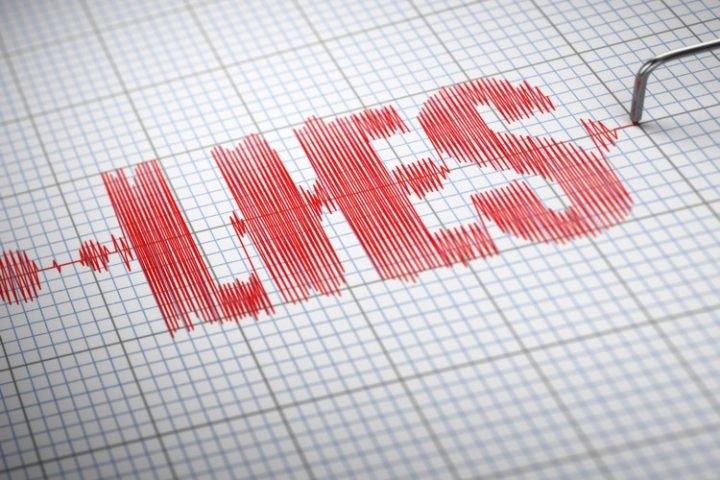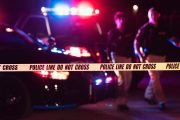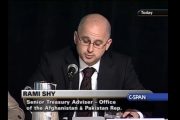
A juror in the trial of former cop Derek Chauvin not only misled the court about his knowledge of the death of George Floyd but also lied on the questionnaire jurors must answer before trial.
The truth about Brandon Mitchell surfaced in the last few days when a photo of the juror in a pro-Floyd T-shirt surfaced online. The photo was taken at a rally for Floyd in Washington, D.C., that Mitchell falsely said he did not attend, multiple news reports have disclosed.
The latest means that Chauvin, convicted of murder and manslaughter in drug-addict Floyd’s death, has even more grounds to appeal his conviction. A juror had his mind made up before he entered the courtroom, despite his promise of impartiality.
“Get Your Knee Off Our Necks”
“I’d never been to [Washington] D.C.,” Mitchell told the Star-Tribune of Minneapolis of his attendance at the rally. “The opportunity to go to D.C., the opportunity to be around thousands and thousands of Black people; I just thought it was a good opportunity to be a part of something.”
Mitchell claimed the rally was really a 57th anniversary commemoration of Martin Luther King’s plagiarized “I Have A Dream” speech, the newspaper reported:
The event was “100% not” a march for Floyd, Mitchell said, adding, “It was directly related to MLK’s March on Washington from the ’60s.… The date of the March on Washington is the date.”
True perhaps, but Floyd’s sister and brother spoke at the event, the newspaper reported, which “served as a rallying point for the George Floyd Justice in Policing Act, a federal police reform bill.”
As well, the rally was titled the “Get Your Knee Off Our Necks” March. The slogan refers to Chauvin’s restraint when Floyd died.
Mitchell confessed that “he answered ‘no’ to two questions in the juror questionnaire sent out before jury selection that asked about participation in demonstrations,” the newspaper reported.
The two questions were these:
Did you, or someone close to you, participate in any of the demonstrations or marches against police brutality that took place in Minneapolis after George Floyd’s death?
Other than what you have already described above, have you, or anyone close to you, participated in protests about police use of force or police brutality?
Apparently, the newspaper did not ask Mitchell why he lied.
As for the social-media post that revealed his BLM sympathies, Mitchell says he’s clueless. The post includes a photo in which he wears a shirt that says “get your knee off our necks.”
But Mitchell can’t remember wearing the shirt.
Mitchell told the court during voir dire that he had little knowledge of the civil case in which the city settled with Floyd’s family for $27 million.
New Grounds for Appeal
Chauvin already had grounds for appeal because Representative Maxine Waters (D-Calif.) threatened riots if the verdict was not “guilty, guilty, guilty.” Another juror worried about a terror attack on her home.
Now, he has more ammunition for a solid appeal, a defense lawyer told the Star-Tribune:
“If [Mitchell] specifically was asked, ‘Have you ever participated in a Black Lives Matter demonstration,’ and he answered, ‘No,’ to that, I think that would be an important appealable issue,” said Joseph Daly, emeritus professor at Mitchell Hamline School of Law.…
Defense attorney Mike Padden, who is not involved in the case, said Mitchell should have divulged his participation and let attorneys and the judge decide whether it would unfairly influence him at trial.
Padden told the newspaper that Chauvin’s attorney, Eric Nelson, would have moved to strike Mitchell, and if the judge denied the strike, he would have used a peremptory strike to remove him.
Writing at his Legal Insurrection blog, Cornell University law professor William Jacboson went further.
“Mitchell lied under any reasonable interpretation of the jury questions and his participation in the protest,” he wrote. “This could result in a mistrial.”
A website devoted to criminal defense issues says that “making false statements in a jury questionnaire actually can be the basis for a charge of perjury, a felony crime.”
A jury in Hennepin County, Minnesota, convicted Chauvin on April 20. Addict Floyd had taken a “fatal” dose of fentanyl and suffered major cardiovascular problems. The autopsy did not find any life-threatening injuries.



